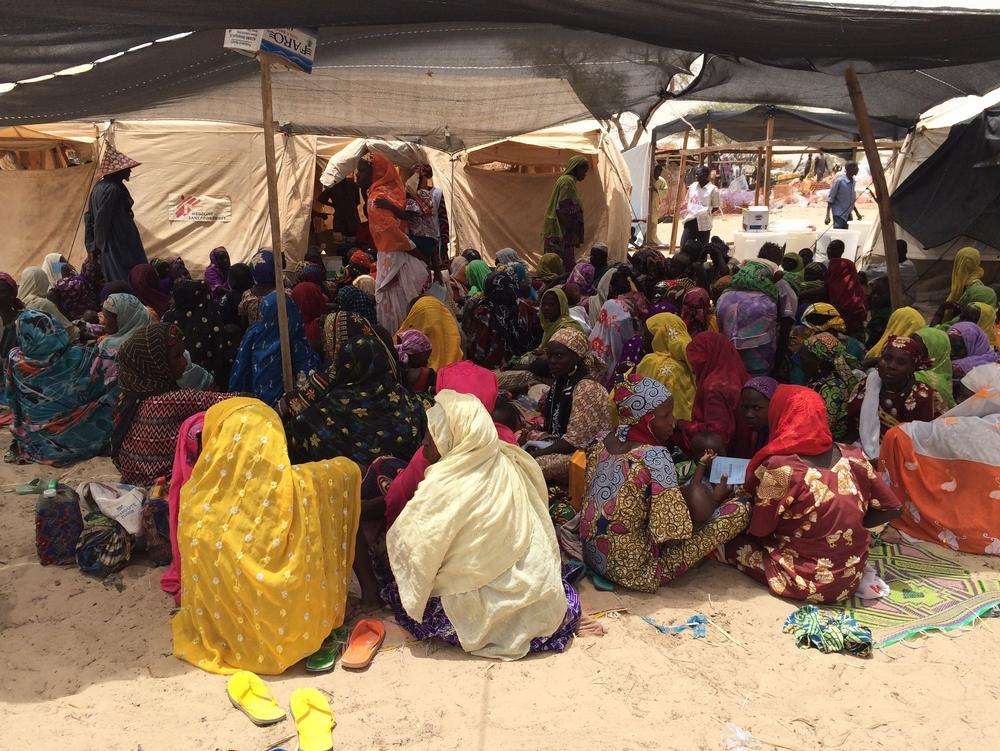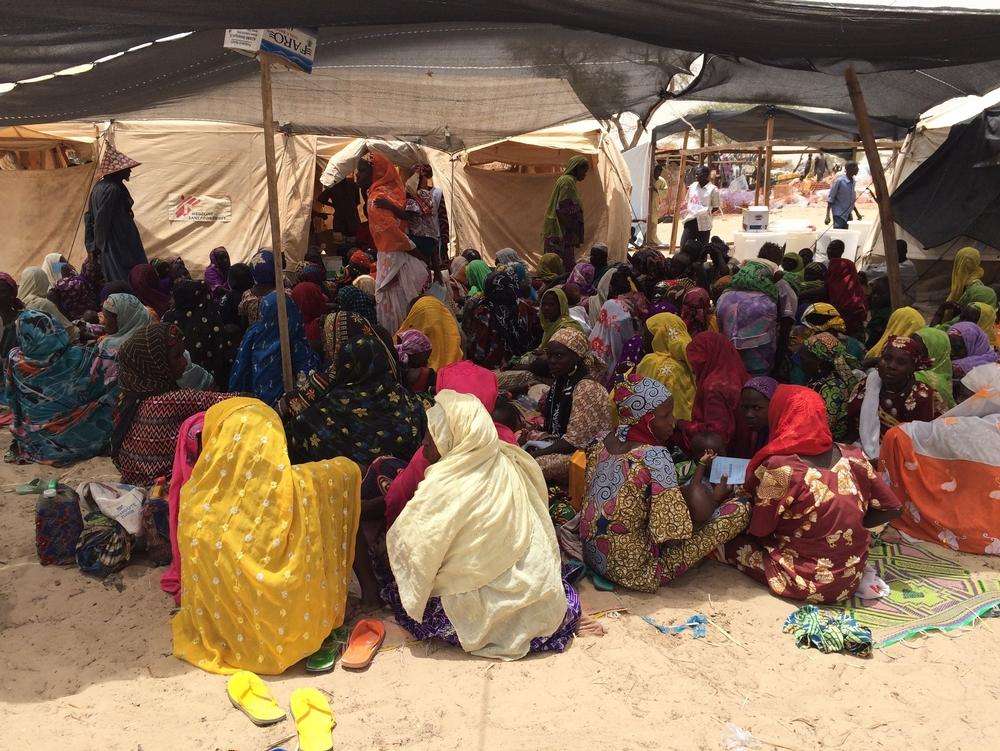For over a year, Doctors Without Borders/Médecins Sans Frontières (MSF) has provided assistance to displaced people living in remote areas in the north of Niger's Diffa region for over a year, far from humanitarian aid. According to official sources, more than 280,000 people displaced by violence linked to the Islamic State’s West Africa Province, better known as Boko Haram, are now in Diffa, in southeastern Niger. Forty thousand of them were forced to flee the recent attacks that took place in Bosso. The majority of the displaced are living in extreme hardship and have settled along Route Nationale 1 (RN1) in more than 35 sites where aid organizations are working, including MSF.
The RN1 crosses the region and runs along the border with Nigeria before turning north to rejoin the shoreline of Lake Chad. It comes to an abrupt end in the eastern part of the region, after the town of Nguigmi, where MSF teams are based, working in the health center and district hospital there. "There are many humanitarian workers and a vast number of displaced people all along the RN1," explains Youssouf Demdelé, deputy head of mission for MSF in Niger. "But there are also several thousand displaced people who are isolated, particularly in villages to the north of Nguigmi, and it is difficult for the aid to reach them."
Displaced People to the North of Nguigmi
There are currently around 20,000 displaced people who, since 2015, have been living in and around eight villages located up to 50 kilometers [about 31 miles] north of Nguigmi. They were evacuated by authorities from islands on Lake Chad following several attacks that took place in the area on 25 April 2015.
Video Testimony: Forced from Home by Boko Haram
"The people in this region are isolated and have very little access to humanitarian aid," says Demdelé. "They lack water, food supplies, shelter, and health care. The original population of the area numbers around 8,000 inhabitants, who have now been joined by 20,000 displaced people." MSF has provided emergency assistance in the area several times since 2015 and has supported the health center in Bilabrim since March 2016. "It’s the largest village in the area and the only place within a 30-kilometer radius that offers any health care," says Demdelé. "Since the arrival of all the displaced people, the center has found itself completely overwhelmed." Over the last four months, 5,394 consultations were conducted in Bilabrim, 2,832 of them for displaced people.
Launching a Mobile Clinic
"In the next few days, we are also going to be setting up a mobile clinic that will go out to the different villages," says Demdelé. The clinic will be manned by three nurses. "There are mothers who come to the Bilabrim health center with their children after walking 10 kilometers across the sand under the hot sun, which means 20 kilometers if you include the return journey. The mobile clinic will allow us to see people who are too far away to access health care."
The lack of health care is not the only problem faced by displaced people and the inhabitants of this remote, arid area. "The main difficulty that people face is the lack of potable water," says Demdelé. "There are only two boreholes, [which] contain water with a high salt content, and some traditional wells with bad quality water. These isolated refugees need provisions and new tents to deal with the difficult climatic conditions. The situation is catastrophic for all displaced people in the Diffa region, but we mustn’t forget those to the north of Nguigmi just because they are less visible."
In the Diffa region, MSF works at the mother and child health care center and in two health centers in the town of Diffa; in the Assaga Camp and the commune of Chétimari (both in the district of Diffa), at the Garin Wanzam and Kintchandi sites, in the health centre of Ngarwa, in several health centers around the shores of Lake Chad (Bilabrim, Ngalewa, and Nguigmi), and at Nguigmi District Hospital. In 2015, MSF conducted more than 142,000 medical consultations in the region.





